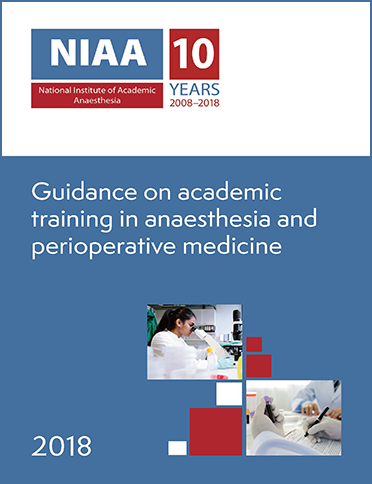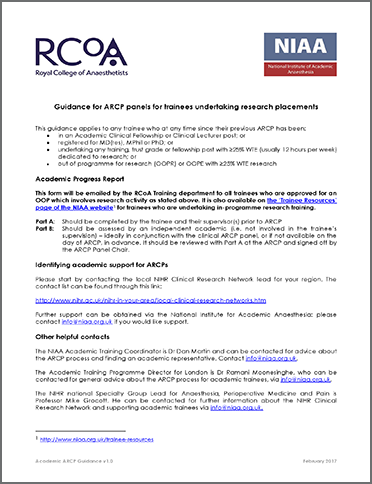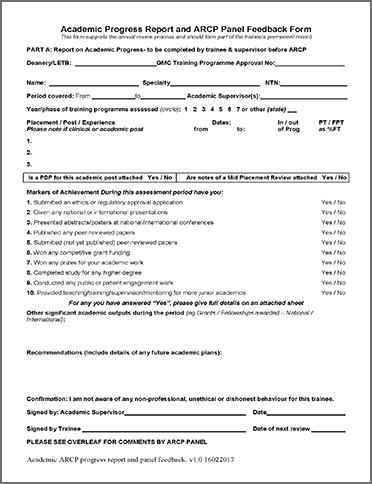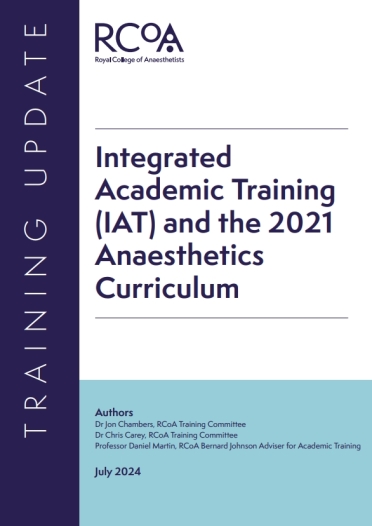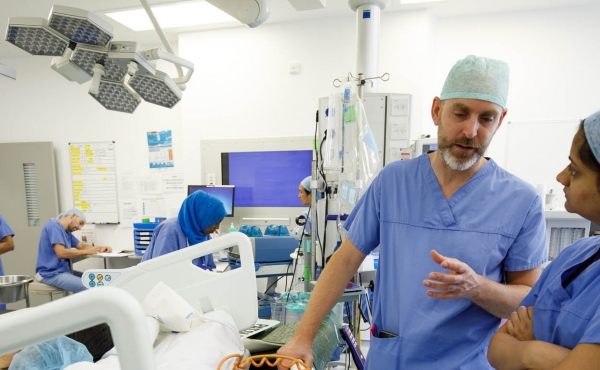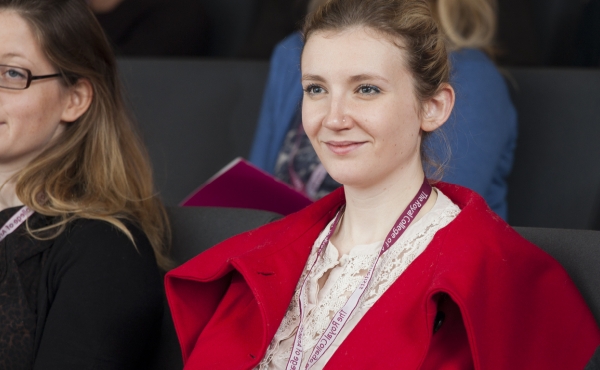Academic training
We believe trainees are the future of academic anaesthesia
The RCoA is committed to the academic advancement of trainees whether they are purely clinically orientated or future clinical academics. The RCoA firmly supports involvement in academic activity as a key component of anaesthetic training which leads to improvements in patient care.
Academic anaesthesia is a rapidly growing field. The number of studies in our specialty is increasing annually, and their findings are being translated into practice that benefits our patients. Whilst much of this research is led by senior investigators throughout the country, Trainees are now engaged at all stages of research, and this is where the future of academic anaesthesia lies.
Trainee resources
Click the links below for resources relating to academic trainees. For a more extensive list of academic trainee resources, please visit the Trainees section of the NIAA website.
Integrated Academic Training (IAT) and the 2021 Anaesthetics Curriculum
This document outlines the principles of academic training within anaesthesia and intensive care medicine. This guidance is not designed to replace these detailed documents but to provide some clarity on how the NIHR Integrated Academic Training (IAT) programme best aligns with the 2021 anaesthetic curriculum
How can I get involved?
If you have ever wondered what it might be like to get involved with research, but thought that research was just for 'academics', you should think again. There are many opportunities within regular anaesthetic practice to get involved in research. These range from helping to collect data for a local project, to designing and funding your own study for a PhD.
We believe that there is something for everyone within academic anaesthesia. If you cannot find what you are looking for here, please contact one of the NIAA representatives who sit on the NIAA Board and Research Council.
Frequently Asked Questions
- Contact your local research ethics committee (REC) to discuss the application process in detail. You can find your local committee by searching the National Research Ethics Service website.
- Read the application form carefully and contact your local REC if you have any queries as this will help to speed up the application process.
- We recommend that you attend the committee meeting at which your application will be discussed, so that you can answer any questions that might arise regarding your application there and then and avoid delays. If you are a trainee, it is also an idea to invite your academic advisor.
- If you are producing any information for patients, make sure that you get feedback from patients and that you record this.
In addition:
- Speak to experienced researchers in your hospital/deanery e.g. clinical academics, research nurses. They will have filled out many REC forms in the past and can provide invaluable advice about how to fill in forms, what crucial pieces of information are needed and what questions are likely to arise at an ethics committee meeting.
- Read the advice on the website: National Research Ethics Service (NRES).
- Check that your study is research and not audit, service evaluation etc. See the NRES leaflet: Defining Research. If unsure, check with your local R&D Office. The process for obtaining ethical approval for non-research studies is much quicker and less complex.
- All applications are online via the Integrated Research Application System (IRAS), accessed via NRES website.
- Expect full ethical approval to be a lengthy process, so plan well in advance.
- Any opportunities to work on HSRC research projects (such as NELA and PQIP) will be advertised on the RCoA, NIAA and HSRC websites, as well as their respective social media feeds and in the RCoA Bulletin.
- Some opportunities are advertised in the BMJ, look under academic appointments as well as anaesthesia/ICM jobs.
- Think about the area of research you are interested in and approach heads of research groups directly to express your interest. They may be able to tell you if there are likely to be any research fellowships coming up.
- Some schools of anaesthesia offer one year research fellow jobs either as in-programme posts offered to local trainees or open to all as out of programme research. Doing a year in the first instance can be a good indication of whether research is for you and can give you time to develop your research idea, collect pilot data etc. prior to applying for the full funding.
- National funding bodies: The Wellcome Trust and Medical Research Council (MRC) both offer PhD funding for clinicians 2-3 times per year. Check their websites for closing dates and for the electronic application forms. Applying is a lengthy process, so leave plenty of time.
- BJA/RCoA Research Fellowship: This is administered through the NIAA. Keep an eye on the NIAA website.
- Intensive Care Society Young Investigator Award. Can provide start-up funds for a project.
- Charities specific to your area of research e.g. Cancer Research UK, Alzheimer's Society. If you are investigating a specific disease there may be funding available from related charities.
- Local funding. Some hospitals/deaneries have charitable funds that may fund research projects, so investigate your local area.
- Military trainees may be able to access military research funding, especially if the research relates to conflict anaesthesia/critical care.
- Generally the options are obtaining fellowship funding e.g. from the Wellcome Trust that covers the costs for the whole of your PhD or accessing smaller grants from a range of sources that together will cover the whole cost.
- Through the NIAA i.e. BJA PhD Studentship (N.B. this is not an annual award).
There is an archive of successful grant stories, for each category of award, on the NIAA website.
Are you a trainee interested in academic anaesthesia?
Why not read some first-hand accounts from trainees who have been down the academic pathway whilst maintaining their anaesthetic clinical practice?
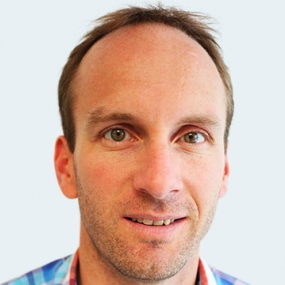
Dan Martin is the NIAA Academic Training Coordinator and RCoA Bernard Johnson Advisor on Academic Training, as well as a senior lecturer in the UCL division of surgery and interventional science. Dan is available to be contacted with any queries regarding academic anaesthesia training.
Click here to contact Dan.

